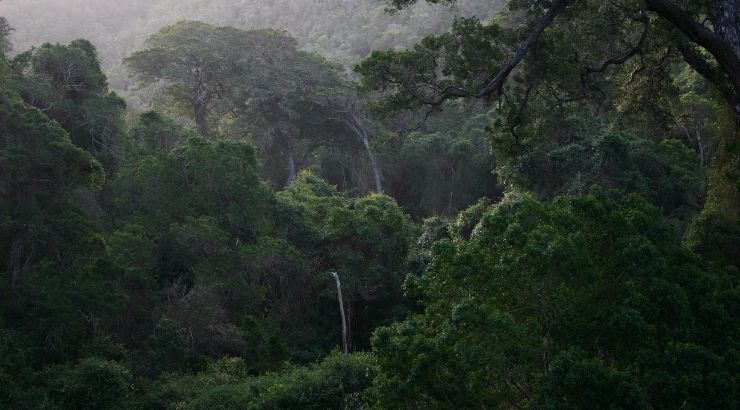
About 350 million trees were planted in a single day in Ethiopia, according to officials, in what could be a new world record.
The tree-planting campaign, part of a national initiative meant to grow four billion trees throughout the country in summer 2019, aims to prevent further deforestation and climate change in a country that is prone to drought.
Each citizen has been encouraged to plant at least forty seedlings, with public offices even facing days off so civil servants can take part, according to the Guardian.
BREAKING NEWS!!
— Dr.-Ing. Getahun Mekuria (@DrGetahun) July 29, 2019
ETHIOPIA PLANTED
353,633,660 TREE SEEDLINGS IN 12Hours#GreenLegacyEthiopia#PMOEthiopia pic.twitter.com/TewfqNzXMN
News that the 350 million trees were planted in 12 hours came through a tweet by Ethiopia’s Minister of Innovation and Technology Getahun Mekuria, that trumpeted the news:
If proven, the achievement is record-breaking, shattering the current world record for planting trees in a single day, which stands at fifty million trees planted in India back in 2016.
According to The Mind Unleashed, state-run media have urged members of the public to devote their efforts to planting and caring for the indigenous trees, with staff from foreign embassies in Ethiopia and international and regional organizations like the UN and African Union taking part in the project.
The exercise, led by Prime Minister Abiy Ahmed and dubbed the Green Legacy Initiative, is taking place around the country in 1,000 different locations, as BBC reports.
Critics of the prime minister claim the campaign is a cynical exercise aiming to distract Ethiopians from domestic troubles, such as internecine warfare and strife between ethnic groups that have driven about 2.5 million people from their homes.
Nevertheless, such conflicts are rooted in the degraded agricultural conditions in the region as well, where lush vegetation and greenery has faded and made way for barren land because of decades of poor land-use policies and general underdevelopment.
The UN says that since the early 1900s, Ethiopia’s forest coverage has precipitously declined from 35 percent of total land to barely 4% in the 2000s.
Officials hope the tree-planting initiative can improve the living conditions of local populations, rebuild agricultural plots and rural economies, as well as ensure climate stability for future generations.
Furthermore, the initiative will open doors to broader progress toward social development, allowing Ethiopians to remain at home rather than be forced out by the desperation that drives migration from impoverished regions in Africa.
#GreenLegacy is to deliver #GreenEthiopia for generations to come.Let's also #PlantOurPrint for a #CivilizedCitizenLegacy by planting Positivity,Love,Unity,Patriotism, Genuineness,Hard working, Wisdom,Integrity...to pass #AdvancedEthiopia 🚀💡🔭for generations.#InfluenceEthiopia pic.twitter.com/ugn9kOl4wX
— Minota Matewos (@minota_matewos) July 29, 2019
Ethiopia joins other groups in their recent tree-planting efforts. A Sikh initiative called The Million Tree Project intends to plant one million new trees across the world, with tens of thousands already having been planted.
A new study published in the journal Science shows that those initiatives have the potential to be an effective means of reversing climate change. Planting about a billion trees around the world could remove two-thirds of all carbon dioxide emissions worldwide—approximately 25% of the CO2 in the atmosphere—creating a vast natural means to trap and store the emissions in an affordable and politically non-controversial manner.













COMMENTS